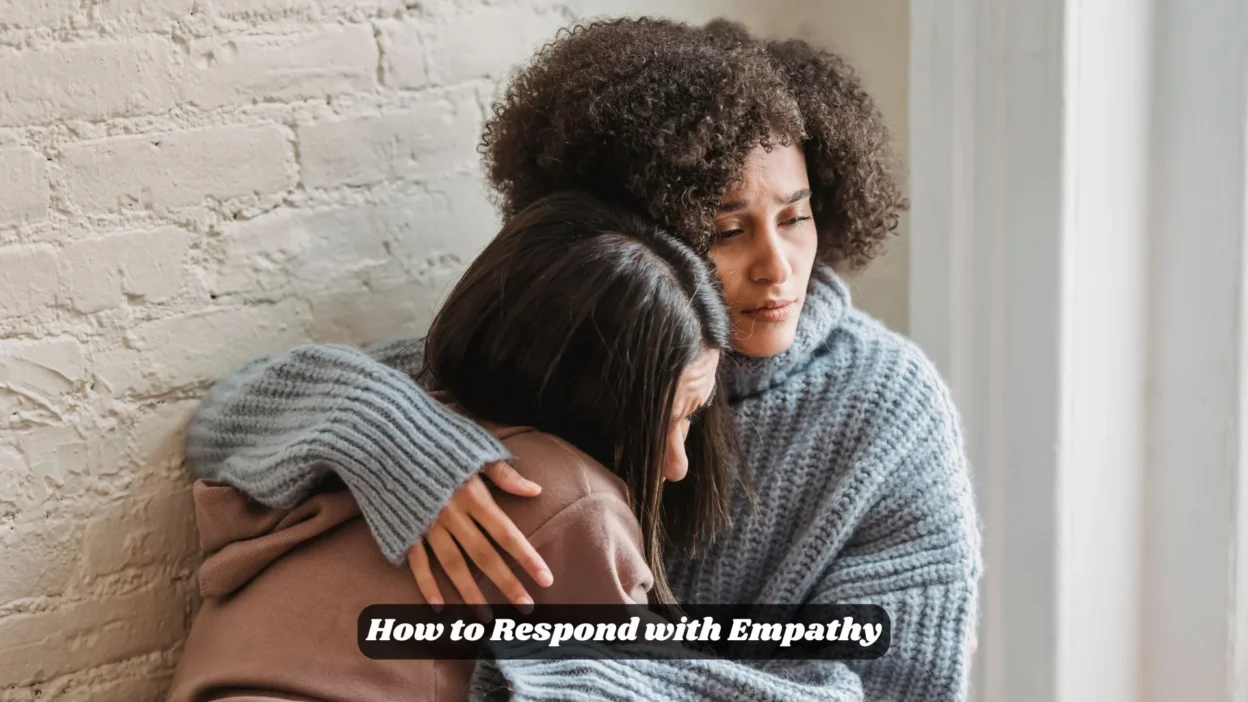When people search for how to respond with empathy, they are usually looking for the right words to show understanding, kindness, and emotional support.
Often, they feel stuck using the same simple phrases like “I understand” or “I’m sorry to hear that” and want to find better, more thoughtful alternatives.
This guide solves that problem by offering many different ways to express empathy.
Whether you are in a formal meeting, chatting with a friend, using idiomatic language, or writing a professional email, the right phrase can help you connect with others meaningfully.
Different situations require different ways to say empathetic words. Sometimes, you need a polite and serious response. Other times, a relaxed and friendly tone is better.
In some cases, you might need to use idiomatic phrases that sound natural and caring. When you are at work, you must choose words that sound both empathetic and professional.
This article gives you all the options you need.
Formal Ways to Say How to Respond with Empathy
- I completely understand your feelings
- That must be very difficult for you
- I am truly sorry you are going through this
- I sympathize with your situation
- It is unfortunate that you have to face this
- Please know that I am here for you
- Your feelings are valid and understandable
- I appreciate you sharing this with me
- I can only imagine how hard this is for you
- I am saddened to hear about your experience
- I respect the strength you are showing
- It must be challenging to handle this
- I regret that you are facing such trouble
- I am sorry this has happened to you
- I acknowledge the pain you are feeling
- I fully respect your emotions in this matter
- Your concerns are important to me
- I realize how much this means to you
- I am genuinely sorry for your hardship
- I understand the weight of this situation
- I offer you my deepest sympathy
- It is completely reasonable to feel this way
- Your struggle does not go unnoticed
- I value your openness in sharing this
- It must have taken great courage to tell me
- I am touched by your honesty
- You have my full support during this time
- I will do my best to help you through this
- Your situation deserves careful attention
- I hope you find comfort soon
Informal Ways to Say How to Respond with Empathy
- I totally get how you feel
- That really sucks
- Oh no, that’s so rough
- I’m here if you want to talk
- That sounds super tough
- I feel for you, really
- Wow, I can’t believe you’re dealing with that
- That’s so not fair
- Hang in there
- I’m really sorry you’re going through this
- Ugh, that must be hard
- I can imagine how much this hurts
- You don’t deserve this at all
- That’s just awful
- I’ve got your back
- I’m just a call away if you need me
- That’s heartbreaking
- I totally see where you’re coming from
- You’re not alone in this
- That’s got to be super frustrating
- I wish I could fix this for you
- You can count on me anytime
- Oh man, I feel you
- I hate that this is happening to you
- You’re strong to get through this
- I really care about how you’re feeling
- That’s honestly so upsetting
- Let’s get through this together
- You’re going to make it through
- I wish things were easier for you
Idiomatic Ways to Say How to Respond with Empathy
- I feel your pain
- That hits close to home
- My heart goes out to you
- I’m with you every step of the way
- That’s a tough pill to swallow
- I’m all ears
- I’ve walked that road before
- That’s a heavy load to carry
- You’re in my thoughts
- That’s no walk in the park
- I can’t even begin to put myself in your shoes
- That really pulls at the heartstrings
- It’s hard to wrap my head around that
- My door is always open
- That must have knocked the wind out of you
- I’ve got your back through thick and thin
- That’s a bitter pill to take
- That must have thrown you for a loop
- I’m here rain or shine
- That’s enough to break anyone’s heart
- You’ve really been through the wringer
- It’s hard to bear something like this
- That’s one tough nut to crack
- You’re carrying a lot on your shoulders
- You’re in deep waters right now
- I’ll stick by you through it all
- That’s like a punch in the gut
- That would shake anyone to the core
- I’m here to help you weather the storm
- That really tugs at my heart
Professional Ways to Say How to Respond with Empathy
- I appreciate your honesty in sharing this
- I understand how this situation may be affecting you
- Please know that your concerns are valid
- I am committed to supporting you through this
- I acknowledge the challenges you are facing
- Thank you for trusting me with this information
- Your well-being is important to our team
- I am available if you would like to discuss this further
- I regret the difficulties this has caused you
- I want to ensure you feel supported moving forward
- I am fully prepared to assist you
- It is perfectly reasonable to feel this way
- Your feedback is valuable and appreciated
- I understand the impact this may have on your work
- Please feel free to reach out at any time
- I am sorry for any inconvenience this has brought
- Your patience during this time means a lot
- I want to be part of finding a helpful solution
- Thank you for bringing this to my attention
- I recognize this may not have been easy to share
- I am here to listen and help
- We will work together to address this
- I am mindful of your current situation
- I respect the effort you have shown despite challenges
- I will follow up to ensure you have what you need
- Your situation matters to me and the team
- I am grateful for your openness
- Let’s work on this together to ease the process
- I am sorry for any stress this may have caused
- Your perspective is fully understood and respected
Conclusion
Using the right words when responding with empathy can make a huge difference in building trust and showing true care. Each situation, whether formal, informal, idiomatic, or professional, needs thoughtful and fitting phrases. By practicing these expressions, you will become better at making people feel heard and supported. Empathy is not just about feeling; it is about expressing it in the right way.

Emilly Dickson is a renowned Urdu author, researcher, and storyteller known for his insightful take on contemporary social issues. His writing style is simple yet thought-provoking, engaging readers while encouraging them to reflect on deeper themes.
Professionally, he is an academic with a PhD in Urdu Literature and has been involved in teaching for over a decade. His works have been published in various national and international literary journals. Dr. Alvi is also a mentor to aspiring writers and an active participant in literary forums and events.
Selected Works:
-
The Screams of Silent Words
-
Travelers of Shadows
-
A Story Stuck on the Lip




